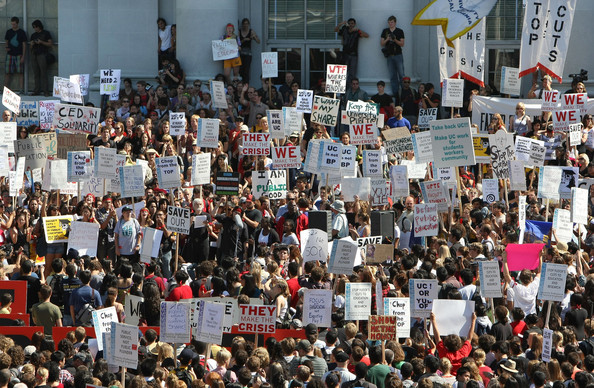
While sociologists and economists had a muscular dialogue on the first day, quickly resolved over lunch with familiar scholarly ethic. The historians closed the day, soft spoken and monorcordic reading their speeches but dropping a bomb: the global public sphere is gone, and there is no longer a past, just an extended present with everyone obsessed with personal, ethnic, identitary history but no real curiosity beyond. So it was appropriate that political scientists try something else, and abandoning the public sphere altogether the discussion today has been about the crises of the University.
Public is a seductive word. Public science is one word better than plain science. The germans were embarrassed that their academics are shy, nay, frightened to participate in the public controversy. A large part of it appears to be insecurity in employment, a picture shown had scholars aged 25-35, almost all in fixed term employment.
According to higher education researcher Reinhard Kreckel, Germany is “quite an outlier” when compared to the US or other European countries. While in other countries – in the US around 50% – of academic staff is in secure professorship positions, only around 17% in Germany can count on this job security. Only fixed-term contracts are offered to mid-level faculty for duration of a maximum of 12 years after completion of a first degree. After these 12 years, a so-called “qualification phase”, persons who have not achieved a secured position with a permanent contract cannot be employed in an academic institution any longer. [ source, the numbers might be overstating job security in the US]
The incentives are there, and the outcome is hyper-professionalism in Germany compared to the USA, and all scandal becomes too costly for the rat race.
As the gaze moved to the University, its crisis, its incentives, the public sphere has been suddenly reframed as the students. And the students either provide the experimental setting to rehearse public engagement, or the students are opinion leaders that can carry to wider society the insights of social science. The students are the public, so are the professors, and anyone that taught and did it with some measure of enthusiasm and commitment, makes connections with students that last beyond the classrom and are rewarding personally and professionally. Yet, is it not a cop out? I am passionate about teaching, but it is only becomes a back and forth if I make it so, and on my terms always, students never have the power to set the agenda, much less the dynamics of knowledge. Can we keep authority and be publicly engaged? I wonder whether the crucial feature of a public science, is that which the germans understood so well, a loss of control, a necessity of abandon. Public science is no longer your science anymore.



